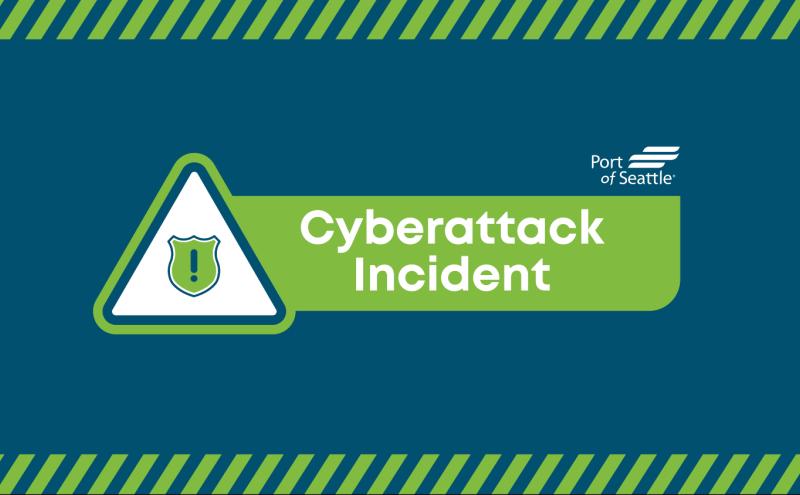
SEATTLE — The Port of Seattle Commission unanimously adopted a resolution on Tuesday, September 10, 2024, opposing Initiative 2117 (I-2117), which would repeal Washington’s Climate Commitment Act (CCA), a carbon credit trading system. I-2117 also prohibits the State from establishing a new cap-and-invest program. Passage of I-2117 would eliminate critical funding for Port and state programs that benefit our economy, increase access to living wage green careers, and support transportation networks and the environment.
“The Port of Seattle Commission’s unanimous opposition to Initiative 2117 reflects our deep commitment to a sustainable future for our region," said Port of Seattle Commission President Hamdi Mohamed. "This harmful measure would dismantle the Climate Commitment Act, a critical tool for addressing climate change and driving economic growth. By jeopardizing funding for vital programs, I-2117 would undermine our efforts to reduce emissions, create green jobs, and protect our environment. I-2117 is a shortsighted proposal and we must protect the CCA to prioritize a cleaner, healthier future for all.”
"Initiative 2117, if passed, will materially damage our ability to continue programs that benefit our transportation system, decarbonization programs, and economic development projects,” said Port of Seattle Commission Vice President Toshiko Hasegawa. “It is our official position to vocally and urgently oppose I-2117, because gutting the funding mechanism necessary to advance our transformation to clean energy is gutting our promise for a healthier, wealthier future for our state.”
If approved, I-2117 is expected to reduce total state revenues by about $3.8 billion over the next five fiscal years (FY25-29). I-2117 would also require a $1.7 billion reduction in spending that was already approved by the State legislature. Those reductions have direct impacts to stated priorities of the Port of Seattle, both immediate and ongoing. The most direct impacts are to ongoing environmental programs, but due to other converging factors, the impacts of I-2117 to the state transportation network are also expected to pose major challenges for the state and the Port. Overall, I-2117 would cause harm to the Port’s long-term goals, disrupt its immediate and ongoing finances, and could cause wide-ranging issues for years to come.
“The benefits from the monumental Climate Commitment Act will reach every corner of Washington State,” said Port of Seattle Commissioner Ryan Calkins. “Efforts to roll back this critical investment through Initiative 2117 will devastate the transport of goods and people as well as our ability to grow climate resilient infrastructure and services. It is imperative that our state continues growing our green economy through what the CCA invests in: advancing clean renewable energy, increasing zero-emission transport options and infrastructure, expanding access to living wage green careers, and funding habitat restoration as the way to fight climate change while benefitting our economy, our communities, and our environment.”
“The Port of Seattle opposes passage of Initiative 2117, which aims to repeal the state’s Climate Commitment Act. If approved, this thoughtless initiative would reduce state revenues by nearly $4 billion. That figure alone should be cause for alarm,” said Port of Seattle Commissioner Sam Cho. “If passed, this will eliminate essential funding sources for various Port priorities and projects that benefit the economy and communities of Washington state, including the Port’s ability to apply for federal grants related to environmental programs immediately and long-term. Simply put, the State cannot afford to repeal the Climate Commitment Act.”
The Port of Seattle urges the protection of the CCA in order to continue critical environmental, economic, and transportation improvement projects throughout the state. Programs and projects that are either at risk of losing funding or unlikely to progress with fewer resources available include:
- Renewable and clean energy development
- Industrial efficiency incentives
- Emission reduction programs for freight
- Air quality monitoring and improvement
- Zero-emission vehicle incentives and infrastructure grants
- Transportation planning for the World Cup
- Building decarbonization and local greenhouse gas reduction projects
- Restoration and protection of salmon habitats
- Study on shore power and emissions
- Green jobs and infrastructure grants
- Clean energy community grants
- Federal grant and tax incentive assistance
“The Port of Seattle strongly opposes Initiative 2117, which will repeal Washington’s Climate Commitment Act (CCA),” said Port of Seattle Commissioner Fred Felleman. “Without the significant revenues being generated by the CCA programs, the Port will not be able to advance the decarbonization of the maritime and aviation industries nor the transition to a clean energy economy. These programs are critical to the environment, economy, and quality of life for all Washingtonians, and the Port stands firmly against their elimination.”
Contact
Peter McGraw | Port of Seattle Senior Media Officer
[email protected]

